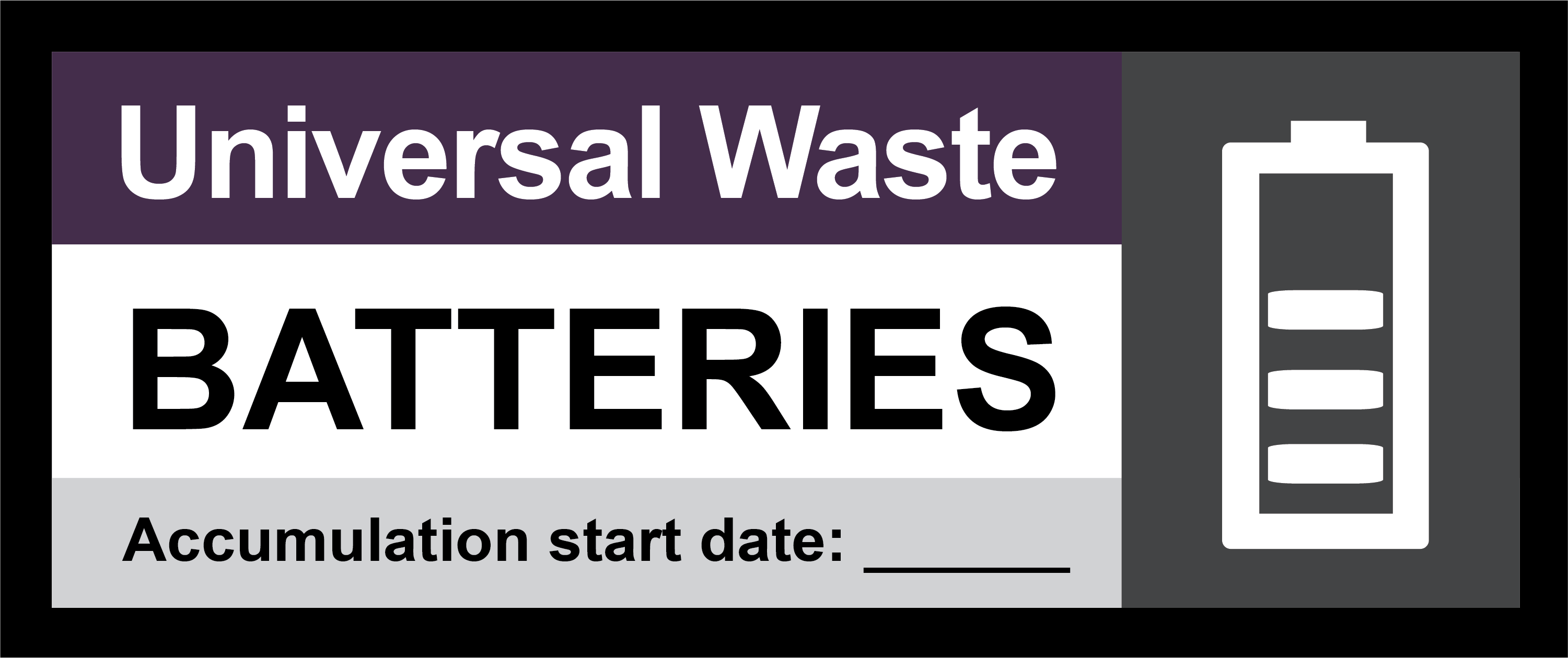Universal waste
Universal waste is a category of dangerous waste that allows businesses to handle several common types of dangerous waste under the Universal Waste Rule (WAC 173-303-573), a more simplified set of rules, rather than the Dangerous Waste Regulations (WAC 173-303-520).
The benefit of managing dangerous waste as universal waste is that it:
- Does not count toward your generator category.
- Does not need to be reported on your Dangerous Waste Report, unless you qualify as a large quantity handler.

If you are a household or individual looking for ways to recycle your household items, please go to 1-800-RECYCLE.
What is universal waste?
In Washington, the following can be managed as universal waste:
- Dangerous waste batteries.
- Lights and lamps (including light bulbs and light tubes).
- Mercury-containing materials (thermometers, thermostats, automotive switches and relays).
How do you manage universal waste?
In order to manage universal waste under the Universal Waste Rule (WAC 173-303-573), you must:
Print or make your own universal waste label.
- Store it properly to prevent breakage and release of toxics to the environment.
- Label it to show the type of waste (see our universal waste labels for example).
- Track accumulation time. Universal waste has a one-year time limit for on-site accumulation. Use one of the following methods:
Determine your handler category
Sites that generate used batteries are called universal waste handlers. Large quantity handlers are subject to additional requirements under the Standards for Universal Waste Management (WAC 173-303-573(17)).
How do you dispose of universal waste?
Send it to a facility equipped and permitted to handle and recycle universal waste.
- Do not treat or dispose of universal waste yourself. Treatment will make universal waste count as dangerous waste treatment
- You may self-transport to other handlers or a destination facility without official documentation of your waste. Remember, you are ultimately responsible for your waste.
Frequently asked questions
Related links
Contact information
Need help?
Contact a dangerous waste inspector in your region


